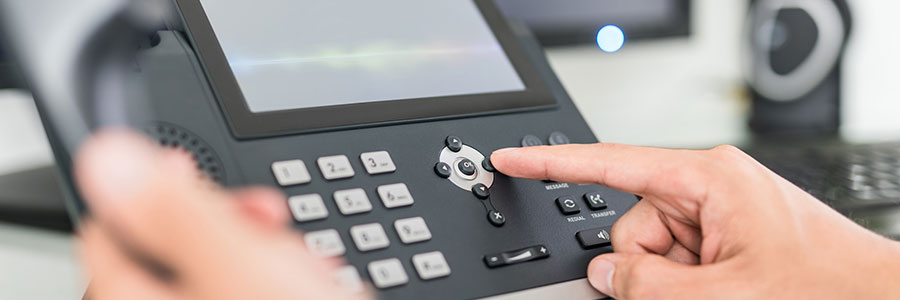When choosing which VoIP telephony system to use, your business has the option of using either VoIP softphones or hardphones. But what makes one better than the other? This blog will highlight their differences to help you make the right choice.
VoIP Softphones
Softphones are apps or programs that let you send and receive phone calls and text messages using a computer, tablet, or smartphone connected to the internet.
Your guide to choosing between VoIP softphones and hardphones

Here’s how to choose the right VoIP solution for your SMB

Many small- and mid-sized businesses (SMBs) turn to Voice over Internet Protocol (VoIP) as their telephony solution. VoIP allows them to make calls either through traditional desk phones (hardphones) or software-based phones (softphones). Find out the pros and cons of both phone options so you can decide which one fits your business best.
How softphones enhance business performance
VoIP options for SMBs
5 VoIP services you need to know about
Choosing the best VoIP option for SMBs

Internet-based technologies like VoIP (Voice over Internet Protocol) are widely used by small- and mid-sized businesses (SMBs) to bolster work productivity and efficiency. There are two kinds of phones to choose from: traditional desk phones (hardphones) or software-based phones (softphones). We’ll break down which is best for your business.
How many types of VoIP services are there?

Should your business deploy a cloud-based or on-premises VoIP system? What’s the difference between software-based VoIP and its mobile counterpart? Which type of VoIP services will suit you most? Featured below is a compilation of all VoIP options and their details to help you answer those questions.



